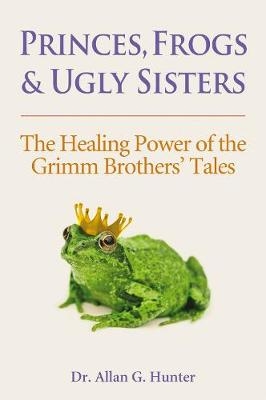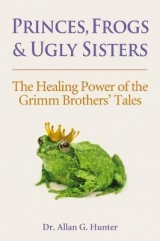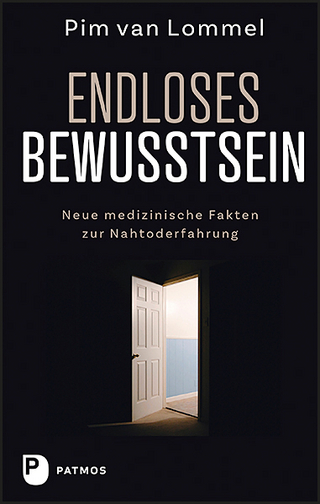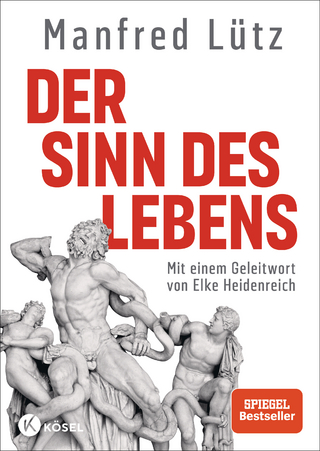Princes, Frogs and Ugly Sisters
Findhorn Press (Verlag)
978-1-84409-184-3 (ISBN)
- Keine Verlagsinformationen verfügbar
- Artikel merken
Analyzing the ways in which the Grimm brothers' tales provide real, vital insights into how to live more happily, understand the need for personal and psychological growth, and find that significant other, this innovative study revives the true healing nature of these beloved tales. Combining enjoyment of these tales with insightful research, this exploration uses actual case histories to show how the odd and bizarre episodes in fairy tales are actually astounding renditions of human behaviors that occur during times of crisis. It also shows how the six archetypal stages of psychological development are present both in these tales and in everyday life. Contrary to common, contemporary fairy tale re-creations, this study discusses how the Grimm brothers’ stories deal with topics such as dysfunctional family dynamics, sexual jealousy, narcissism, incest, rape, and personal growth from trauma to wellness—noting that Cinderella didn’t have a fairy godmother and frogs were never kissed.
Dr. Allan G. Hunter is a professor of literature, a counselor, a therapist, and the author of nine books about the regenerative power of writing and literature, including The Six Archetypes of Love and Stories We Need to Know. He lives in Watertown, Massachusetts.
Chapter 1 Why we need fairy tales. The question of archetypes. All tales are stolen property.
Chapter 2 ‘The Frog-King’; Sex, Coercion, and personal integrity.
Chapter 3 ‘Faithful John’; Renegotiating the relationship with the father; the moderation of pride.
Chapter 4 ‘Brother and Sister’. Marriage, and the problem of post partum depression.
Chapter 5 The Nature of The Tales: ‘The Three Spinners’, ‘Rapunzel’. The dangers of the possessive parent, and of thwarted young love.
Chapter 6 ‘Cinderella’; Sexual maturation and self-empowerment; the real story.
Chapter 7 The question of good and evil. ‘The Girl Without Hands’, and ‘The Robber Bridegroom’. Two ways of confronting evil.
Chapter 8 Sexual rivalry, Narcissism, and incest; ‘Little Snow-White’ and ‘Allerleirauh’.
Chapter 9 Parental rejection; ‘Hans the Hedgehog’ – and the recovering of personal authenticity.
Chapter 10 ‘The Three Feathers’; The descent into the self.
Chapter 11 ‘The Skillful Huntsman’; Meeting the Shadow; the restraining of sexuality.
Chapter 12 ‘The Two Kings’ Children’; ‘forgetting’ and family coercion.
Chapter 13 Beowulf as a contrast; facing the demons. The three tests. ‘The Golden Bird’.
Chapter 14 ‘The Glass Coffin’: Sexual manipulations, rape - and the way of healing.
Chapter 15 The simpleton and the three-fold test; sleep as a metaphor, Sleeping Beauty and ‘Little Briar-Rose’.
Chapter 16 Closing: The Descent into the Unconscious.
Appendix: The Historical background.
| Erscheint lt. Verlag | 23.9.2010 |
|---|---|
| Verlagsort | Rochester |
| Sprache | englisch |
| Maße | 152 x 229 mm |
| Gewicht | 256 g |
| Themenwelt | Sachbuch/Ratgeber ► Gesundheit / Leben / Psychologie ► Esoterik / Spiritualität |
| Sozialwissenschaften ► Soziologie | |
| ISBN-10 | 1-84409-184-8 / 1844091848 |
| ISBN-13 | 978-1-84409-184-3 / 9781844091843 |
| Zustand | Neuware |
| Haben Sie eine Frage zum Produkt? |
aus dem Bereich




